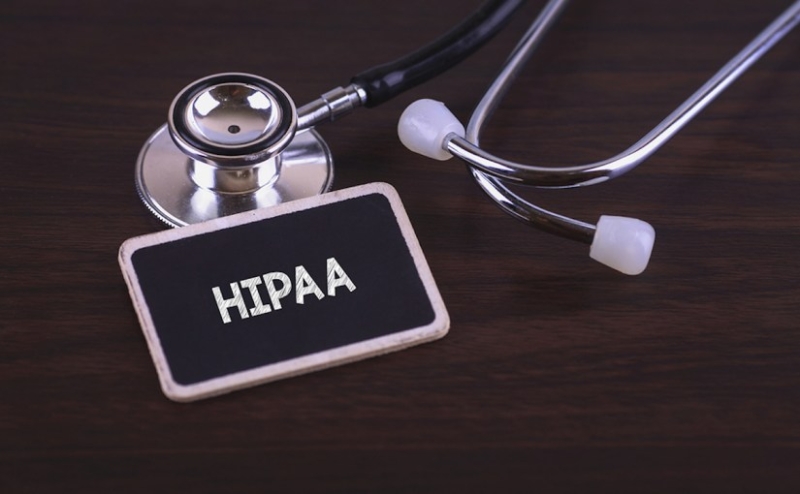
- A new study found higher levels of inflammation in colorectal cancer tumors, suppressing the body’s ability to fight the disease.
- Researchers note the typical Western diet is a driver of inflammation, while other studies have linked ultra-processed foods to inflammation.
- Experts recommend limiting or avoiding ultra-processed foods to reduce cancer risk, opting for healthier choices including whole grains, fruits, and vegetables.
A new analysis of colorectal cancer tumors shows they have higher levels of inflammation and lack a natural ability to resolve the inflammation.
The study, published December 10 in the journal Gut, examined 162 tumor samples from people with colorectal cancer. The findings indicate the lipid profile of colorectal cancer tumors exhibit a “distinct pro-inflammatory bias.”
The researchers suggest employing “resolution medicine” as a treatment for colorectal cancer to reverse inflammation and restore the body’s healing mechanisms. They also note the typical Western diet has been strongly linked to chronic inflammation and the development and progression of colorectal cancer.
Geoffrey Buckle, MD, a gastrointestinal oncologist at UCSF Health in San Francisco, noted the findings have the potential to expand the knowledge of cancer and inflammation. Buckle wasn’t involved in the study.
“This is a fascinating study that looks at inflammatory changes in colorectal cancer and begins to paint a picture of how inflammation may arise in and around tumors,” Buckle said.
“Interestingly, it also explores the ways in which inflammation could be a target for future cancer treatment. This work is both interesting and very important. We have long suspected a link between inflammation and cancer, but little is known about the mechanistic underpinnings of this link. This study adds to a growing body of literature suggesting inflammation may play an important role in cancer development,” he told Healthline.
Do ultra-processed foods raise colon cancer risk?
In the United States, ultra-processed foods comprise more than 50% of daily caloric intake by adults. Ultra-processed foods are also a driver of inflammation.
“Many things can increase the risk of inflammation in the body and since inflammation is the basis of many diseases, including cancer, finding anti-inflammatory approaches to offset inflammatory levels (such as limiting ultra-processed foods) and replacing them with foods that reduce inflammation make sense in light of the study’s findings,” Kristin Kirkpatrick, a dietitian at the Cleveland Clinic Department of Wellness & Preventive Medicine in Ohio, told Healthline. Kirkpatrick wasn’t involved in the new study.
Wael Harb, MD, a hematologist and medical oncologist at MemorialCare Cancer Institute at Orange Coast and Saddleback Medical Centers in California, not involved in the study, explained that ultra-processed foods not only lead to chronic inflammation but also immune suppression, “creating an environment conducive to cancer development and progression.”
“The study published in Gut provides compelling evidence linking ultra-processed foods (UPFs) to an increased risk of colorectal cancer (CRC) and a diminished capacity for the body to combat the disease,” Harb told Healthline.
How diet affects cancer risk
For years, health experts have said the traditional Western diet followed by many people in the U.S. can raise a person’s risk of a number of cancers.
They’ve also noted that diet is important for a person before, during, and after treatment for colorectal cancer.
Ultra-processed foods, including sweetened breakfast cereals, candy, white bread, and chips, have been linked to an increased risk of diabetes, heart disease, and cancer. These foods are also linked to an increased risk of obesity as well as cognitive decline.
“Diet is a significant factor and I will add that diet is also a modifiable risk (which differs from age, genetics, etc.),” Kirkpatrick said.
“What we see from the data is that the risk for colorectal cancer related to your dietary pattern is not just what you consume regularly but also about what you limit. For example, high-fiber, high nutrient dense foods can help reduce risk, while processed red meat can increase risk. Regular physical activity, not smoking, and limiting alcohol intake are also modifiable factors,” she explained.
Anton Bilchik, MD, a surgical oncologist as well as chief of medicine and the director of the Gastrointestinal and Hepatobiliary Program at Providence Saint John’s Cancer Institute in California, agrees there are other important elements in addition to diet. Bilchik wasn’t involved in the study.
“There are several risk factors in the development of colorectal cancer. These include diet, obesity, family history and physical inactivity. All are important factors but there are likely many other risk factors that are yet to be defined,” Bilchik told Healthline.
Harb is also in agreement. “While diet is a significant modifiable risk factor for CRC, other factors such as genetic predisposition, family history, age, smoking, alcohol consumption, physical inactivity, and obesity also play crucial roles,” he said. “A comprehensive approach to CRC prevention should address all these elements.”
Harb added it’s also important to follow a healthy diet while undergoing cancer treatment.
“Maintaining a healthy diet during CRC treatment is vital,” he said. “Proper nutrition supports the immune system, enhances tolerance to treatment, and improves overall well-being. Patients should focus on easily digestible foods, such as lean proteins, certain vegetables, and low-fat dairy, while ensuring adequate hydration.”
“It is essential to maintain a healthy balanced diet during treatment because the immune system depends on nutrients to either eliminate cancer cells or prevent them from returning,” Bilchik added.
Buckle listed some cautions when it comes to diet during cancer treatment.
“We certainly encourage patients to try to eat healthy while they are being treated for colorectal cancer, but I also caution patients that adopting dietary changes when undergoing active cancer treatment can be challenging and likely has a small benefit at best,” he said.
“There have been a number of studies looking at specific diets during cancer treatment such as ketogenic diet, Mediterranean diet, intermittent fasting, among others, and while studies have showed promising signals of benefit, further research is needed before ready for primetime or adopting as standard of care. While I do recommend patients try to eat healthy, I also remind patients that its OK to rely on comfort foods during treatment, particularly when dealing with some of the adverse effects of chemotherapy (e.g., loss of appetite, nausea, taste changes),” Buckle noted.
The best foods to lower cancer risk
To reduce cancer risk, Kirkpatrick recommended foods higher in fiber such as whole grains, fruits, and vegetables as well as foods in the allium family such as onions, garlic, and leeks.
Harb suggested getting adequate fiber and antioxidants daily. “To lower CRC risk, I recommend a diet rich in unprocessed foods, including vegetables, fruits, whole grains, legumes, nuts, and lean proteins like fish and poultry,” he said.
“These foods are high in fiber and antioxidants, which promote healthy digestion and support the gut microbiome, potentially offering protective effects against CRC. Limiting the intake of red and processed meats, as well as sugary and ultra-processed foods, is also advisable,” Harb added.
“Fruits, vegetables, foods rich in omega 3 fatty acids such as salmon as well as foods with a high fiber content are all important to reduce the risk of developing colorectal cancer,” Bilchik noted.
“We generally recommend that individuals drink alcohol in moderation, avoid tobacco use, and limit dietary intake of red and processed meat (e.g., sausages, bacon, ham, beef jerky, and other forms of meat that are smoked, salted, fermented, or cured),” Buckle said.
“We recommend adequate dietary fiber and calcium intake. We also recommend a diet with regular fruit and vegetable intake.”
What to know about colorectal cancer
Colorectal cancer is the second leading cause of cancer-related death in the U.S.
The American Cancer Society (ACS) notes that the diagnosis rate and the death rate for colorectal cancer has been decreasing in the United States since the 1980s.
The ACS attributes the decline to increased screening and adjustments in lifestyle factors. However, they add that most of the decrease has occurred in older adults while the rates among younger adults have been rising.
Earlier this year, it was reported that early onset colorectal cancer in adults under the age of 50 has increased from less than 5 cases per 100,000 people in 1994 to 10 cases per 100,000 people in 2021.
The American College of Physicians now recommends people start getting screened for colorectal cancer at age 50.
Takeaway
Researchers say chronic inflammation raises the risk of colorectal cancer as well as suppresses the body’s ability to fight the disease.
The Western diet, which is laden with ultra-processed foods, is a major cause of chronic inflammation.
Experts recommend limiting ultra-processed foods and consuming natural and healthier foods such as whole grains, vegetables, and fruits.


